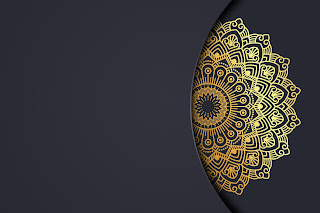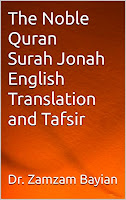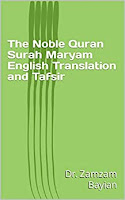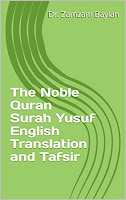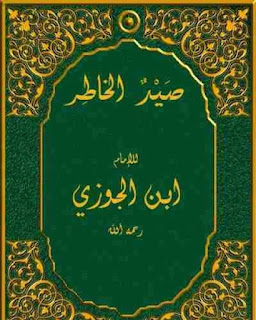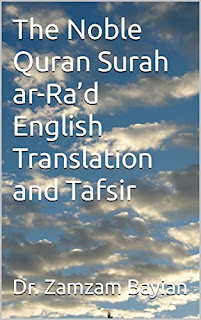An-Nawawi’s Forty Hadith [6]
An-Nu’man Ibn Bashir, may Allah be pleased with him, said, I heard Messenger Muhammad [peace be upon him] say, ‘Verily, the lawful is clear and verily the unlawful is clear, and there are between them some suspicious matters that many people do not know. Thus, whoever avoids the suspicious matters clears himself regarding his religion and honor. And whoever falls into the suspicious matters falls into the unlawful. He is like a shepherd who herds his cattle around a sanctuary; he is about to let them graze therein. Truly, every king has a sanctuary; truly, the sanctuary of Allah is His prohibitions. Truly, there is a piece of flesh in the body, if it is sound, the entire body will be sound, and if it is spoiled, the entire body will be spoiled. Truly, it is the heart.’ [Al-Bukhari & Muslim]
Short Biography of An-Nu’man Ibn Bashir
An-Nu’man Ibn Bashir Ibn Sa’d was one of the companions of Messenger Muhammad, the son of his companion Abu Abdul Allah Al-Ansari Al-Khazrji, and a great scholar. An-Nu’man was the first baby among the Ansar, the helpers, namely, the inhabitants of Al-Madianh, born in Al-Madianh after Messenger Muhammad [peace be upon him] migrated to it.
He narrated a hundred and fourteen hadith from Messenger Muhammad. Messenger Muhammad died while An-Nu’man was eight years and seven months old, which is evidence that the narration of young children is accepted by scholars of hadith. The young child would hear the narration from Messenger Muhammad and then he would narrate it after he became an adult.
An-Nu’man died in 64 A.H. may Allah be pleased with him.
Virtue of the Hadith
The abovementioned hadith revolves around a great principle in Islam. The scholars unanimously agree on its ample benefits. Reflecting on the meaning of the hadith, one finds that it commands to perform lawful acts, avoid unlawful acts, refrain from committing suspicious matters, do one’s best to be on the safe side concerning one’s religion and honor, not to do things that cause negative presumption and committing undesired things, and endeavor to perform what amends the heart, etc.
Explanation of the Hadith
[Verily, the lawful is clear and verily the unlawful is clear, and there are between them some suspicious matters that many people do not know.]
The lawful matters are clear and the unlawful matters are clear in Islam. However, there are some suspicious matters between them, which cannot be easily known whether lawful or unlawful by some people.
Thus, things are divided into three categories.
First, lawful things that all people know, such as fruit and vegetables are lawful.
Second, unlawful things that all people know, such as wine is prohibited.
Third, suspicious things that are unclear whether they are lawful or unlawful. Many people do not know whether they are lawful or unlawful; however, the scholars know their rules by referring to the Quran and the Sunnah of Messenger Muhammad.
[Thus, whoever avoids the suspicious matters clears himself regarding his religion and honor.]
Whoever avoids suspicious matters and keeps himself away from them clears himself from whatever thing that may negatively affect his religion and honor.
[And whoever falls into the suspicious matters falls into the unlawful.]
Whoever falls into the suspicious matters by committing them falls into the unlawful and commits it.
[He is like a shepherd who herds his cattle around a sanctuary; he is about to let them graze therein.]
The example of a person, who commits unlawful acts by not keeping himself away from suspicious matters, is like a shepherd, who herds his cattle around a sanctuary that its owner prohibits others from grazing therein. As he herds his cattle close to the sanctuary, his cattle will likely graze in the sanctuary.
The intended meaning is that kings usually have protected places that ordinary people are prohibited from using. Allah, Exalted be He, has the greatest example. Allah is the King of kings. He has a sanctuary, namely, His prohibitions that He has commanded people to avoid. He has warned those who commit prohibited things of severe punishment. Therefore, it is more becoming for people to revere the commands of Allah and avoid His prohibitions just as common people revere their kings.
[Truly, there is a piece of flesh in the body, if it is sound, the entire body will be sound, and if it is spoiled, the entire body will be spoiled. Truly, it is the heart.]
Truly, there is a piece of flesh in the body, if it is sound by believing in the Oneness of Allah and sincerely performing righteous deeds for His sake, the entire body will be sound. On the other hand, if this piece of flesh is spoiled by disobeying the commands of Allah, the entire body will be spoiled. This part of the body is the heart.
Learned Lessons from the Sixth Hadith of the Forty Hadith of An-Nawawi
• The lawful and the unlawful are clear in Islamic law, but there are some suspicious matters that only the scholars know.
• The Muslim should avoid suspicious matters to preserve his religion and honor from falling into inappropriate situations and blameworthy matters.
• Those who come close to suspicious matters will easily commit unlawful matters.
• Lawful earning brightens the heart and makes it sound, and vice versa.
• The rank of the heart is great; therefore, one should do his best to make it free of blameworthy matters.
